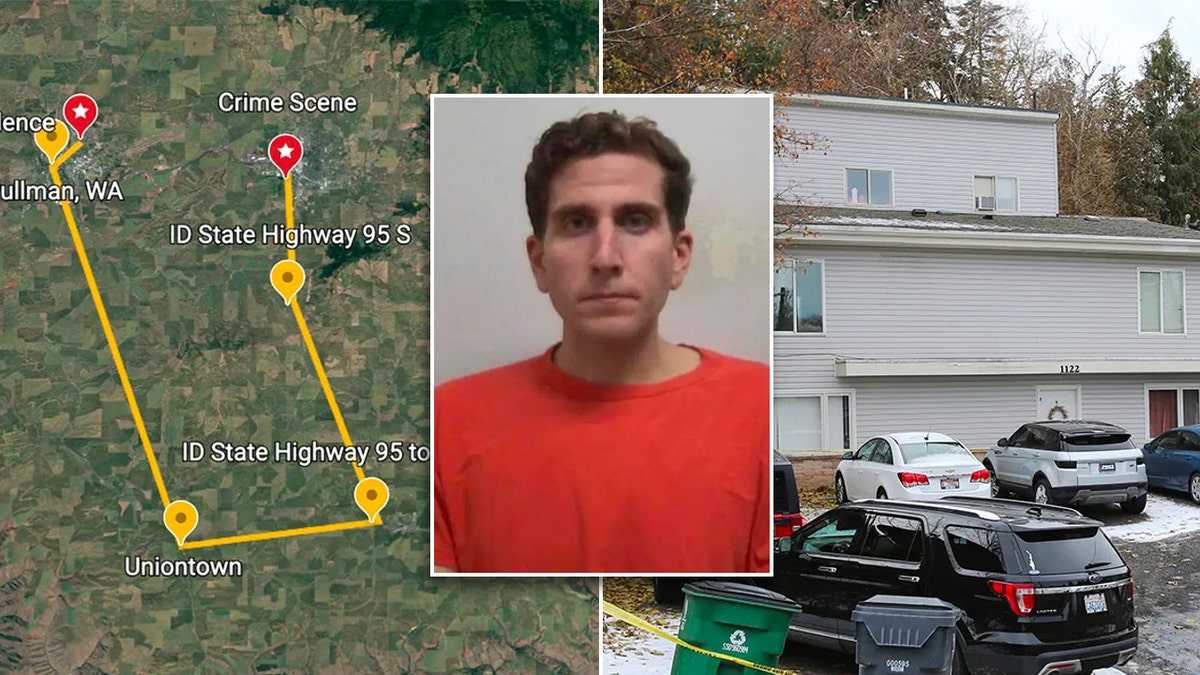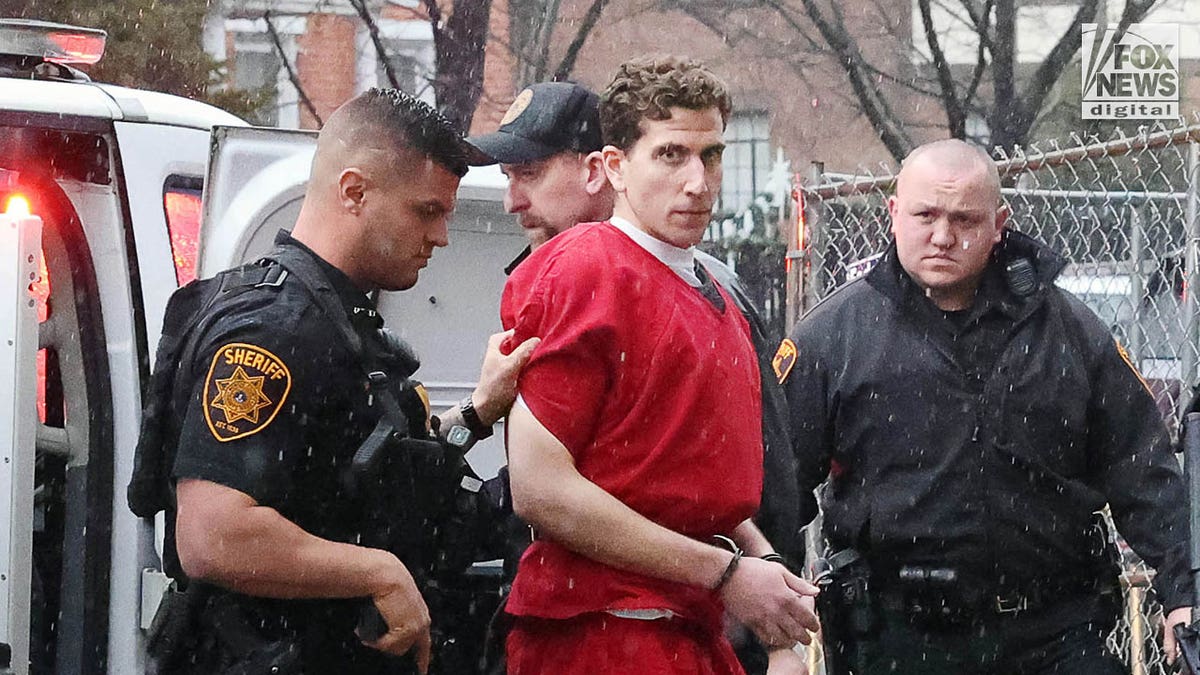More evidence released linking suspect to Idaho murder crime scene
Criminal defense attorney Molly Parmer on new details in the Idaho murder case including the suspect stalking the victims’ home 12 times
MOSCOW, Idaho – The tan leather knife sheath found next to the bodies of two slain University of Idaho students could indicate that the killer targeted them, according to a forensic expert.
Kaylee Goncalves and Madison Mogen, both 21, were found in bed stabbed to death Nov. 13 on the third floor of a rental home in Moscow, Idaho.
Moscow Police Department Cpl. Brett Payne noticed "what appeared to be a tan leather knife sheath laying on the bed next to Mogen's right side," the investigator wrote in an affidavit released Thursday.
The document names Bryan Kohberger — a 28-year-old criminology student at nearby Washington State University — as the suspect in the quadruple homicide.
"I think that’s where the attack initiated, and that’s important," Joseph Scott Morgan, a distinguished scholar of applied forensics at Jacksonville State University in Alabama, told Fox News Digital "[It] goes to progression, and it goes to who the target was. That was perhaps the specific location he was bound for."
UNIVERSITY OF IDAHO STUDENT STABBINGS TIMELINE

Morgan described the moment the alleged killer's murderous rampage may have begun. "It’s a very dramatic thing when you think about it," he said. "He’s near the bed, grabs the handle of the blade and flips that button on the sheath [while] his other hand drops the sheath in the bed after drawing the knife."
The other two victims, Xana Kernodle and Ethan Chapin, both 20, were found stabbed to death on the second floor.
The sheath was labeled with "Ka-Bar" and "USMC," and had a United States Marine Corps insignia stamped on the outside, the affidavit says.
The Idaho State Police lab later identified Kohberger's DNA on the button snap of the knife, Payne wrote.
Morgan called leaving the sheath behind a "gigantic misstep" that provided police with Kohberger's DNA and could lead them to the source of the weapon.
After Kohberger and his father drove more than 2,500 miles to his family's home in Albrightsville, Pennsylvania, for winter break, investigators recovered trash from their house.
A DNA profile developed from a piece of the garbage belonged to the biological father of the DNA profile found on the sheath, the affidavit says.
READ THE AFFIDAVIT BELOW. APP USERS: CLICK HERE.
CeCe Moore, chief genetic genealogist at Parabon Nanolabs and the founder of DNA Detectives, said the DNA evidence left on the sheath is likely "touch DNA" which comes from skin cells.
"The defense attorneys are probably going to argue that the DNA could have been transferred," she explained. "Touch DNA can stay on something for a very long time."
IDAHO MURDERS: BYRAN KOHBERGER HELD WITHOUT BOND IN STUDENT SLAYINGS AMID CHILLING NEW DETAILS
Kohberger could say he sold or gave away a similar knife with a sheath.

University of Idaho students Ethan Chapin, 20; Xana Kernodle, 20; Madison Mogen, 21; and Kaylee Goncalves, 21. (Jazzmin Kernodle via AP/Instagram/ @kayleegoncalves)
"It’s still strong evidence in conjunction with everything else," she said.
Police may have much stronger DNA evidence from the crime scene – such as Kohberger's blood – that they didn't disclose in the affidavit, Moore added.
IDAHO MURDER VICTIMS' ROOMMATE HEARD CRYING, SAW MAN IN MASK NIGHT OF KILLINGS: COURT DOCS
Criminal defense lawyer Mark Geragos noted that while the DNA found on the sheath is significant, there's a lot more DNA work that still needs to be processed and analyzed.
"The fact that there was a DNA single source — it looks like on the sheath…and the way they tied it to the suspect is they rummaged through the trash in Pennsylvania, and they did a comparison and found that it would not exclude the father to a pretty good number," Geragos said.
He also said that investigators went to great lengths to place a phone and vehicle belonging to Kohberger near the crime scene in the early morning hours of Nov. 13 through records obtained via search warrants.

Bryan Kohberger arrives to Monroe County Courthouse in advance of his extradition hearing. He's charged with four counts of first-degree murder for the slayings of four University of Idaho students. (The Image Direct for Fox News Digital)
Kohberger's vehicle, a white, 2015 Hyundai Elantra, was spotted on surveillance footage near the crime scene between 4 a.m. and 4:25 a.m. – the time of the murders, the affidavit says.
CLICK HERE TO GET THE FOX NEWS APP
His phone pinged at his residence in Pullman – eight miles from the King Road home – just before 3 a.m. and went dark until 4:48 a.m.
His phone later pinged near the crime scene after 9 a.m. on Nov. 13 hours before police responded to the house, according to the affidavit.
Police have not disclosed a motive for the mass murder or a connection between the alleged killer and the victims.











































